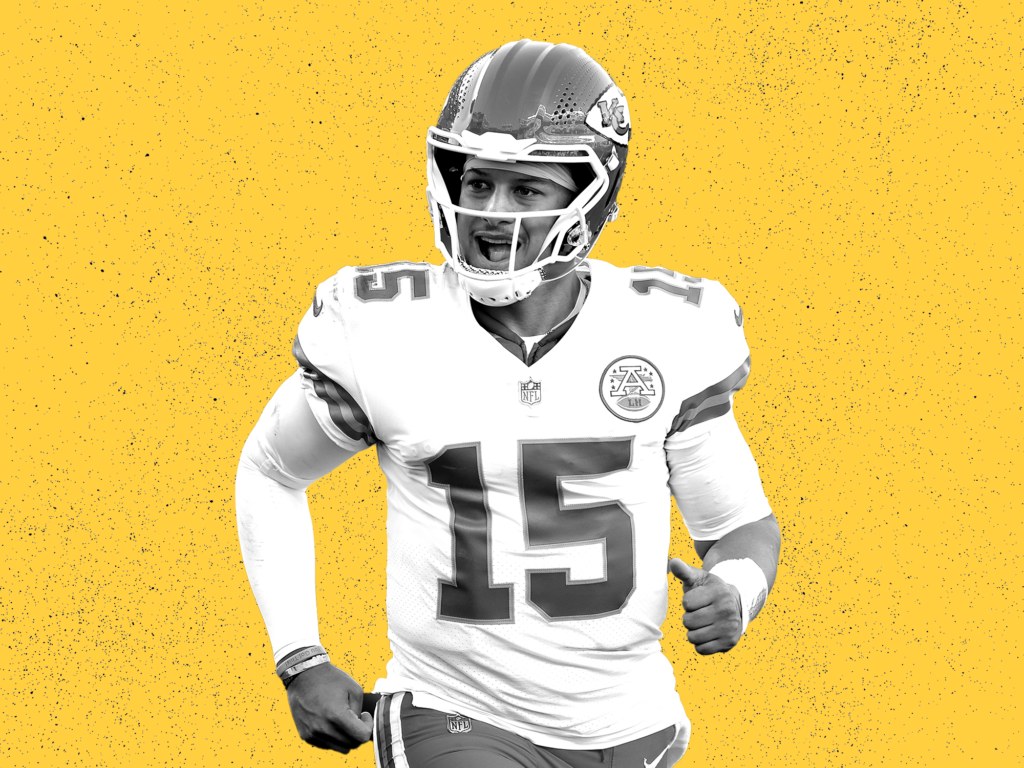- Kansas City Chiefs quarterback Patrick Mahomes has defended his "dad bod."
- Having more body fat is actually helpful as a quarterback, which is the case for many sports.
- Fellow NFL player Travis Kelce has also defended his so-called "dad bod."
Patrick Mahomes knows he's not the leanest athlete, and he's not mad about it.
Reacting to a viral shirtless photo of himself, the Kansas City Chiefs quarterback defended his "dad bod" in an interview with Time magazine for the 2024 Time 100. Mahomes was named the second most influential person in the world.
"I definitely have the dad bod a little bit," Mahomes, 28, said. "I'll also say I have a great body for a quarterback. You've got to have some padding in there to take the hits that we take."
And he's right. As a quarterback, Mahomes doesn't need visible abs — and being lean can actually hinder performance.
First, quarterbacks get hit. A lot. More body fat means you're more stable and harder to tackle.
More importantly, the role of the quarterback is to lead the offense and pass the ball. Mahomes may be the greatest quarterback of all time because he passes the ball with almost pristine accuracy. You don't need to be cut for that.
Having higher body fat doesn't mean Mahomes is lacking explosive power and strength in his muscles, even if they're a bit less visible. Don't believe me? Watch his performance on the field and in the gym.
While bodybuilders and fitness influencers may work out with an aesthetic goal in mind, athletes train and eat with the aim of building a body that will help them excel in their sport.
If you're constantly trying to lose body fat and get shredded, the calorie deficit required will mean you lack energy and don't perform at your best.
With Mahomes earning $59.3 million on and off the field in 2023, putting him 24th on Forbes' 2023 list of highest-paid athletes, it seems to be working out alright for him.
Travis Kelce also defended his 'dad bod'
Mahomes isn't the only NFL star who's been recently criticized for having a "dad bod" (which, let's face it, is a pretty pejorative term to describe a man over 30 who simply isn't shredded).

Travis Kelce, Kansas City Chiefs' tight end, was pictured on a beach vacation in the Bahamas with girlfriend Taylor Swift a few weeks after winning the Super Bowl.
The photos prompted so much debate about Kelce's body, and his not having a six-pack, that he defended himself on his podcast.
"It's March! We're in the same weight class right now!" Kelce said to his brother Jason, who has just retired from the Philadelphia Eagles.
Being lean does not equal health
Both Mahomes and Kelce likely know that being shredded wouldn't actually help them on the field.
If only they would stick to their (slightly more insulated) guns.
Kelce implied that he had gained some weight in the month since the Super Bowl. Mahomes defended his body in his Time interview, but later added: "I'm about to make sure that I get rid of this dad bod if I want to play to 45."
While having a low body fat percentage is becoming the ideal for actors, athletes, and anyone online, the reality is that it isn't healthy for most people. Being lean can affect your mental agility, and increases the risk of bone issues, such as osteoporosis.
Personal trainer Ben Carpenter, who stays lean because of his own health conditions, says people get the wrong idea when they see his visible muscles.
"The funny thing is, a lot of people who have much higher body fat levels than me would be much healthier, objectively," Carpenter told BI in a previous interview.
Mahomes and Kelce are a refreshing antidote to today's aesthetic fitness ideals.
With the pervasiveness of "bigorexia" — a preoccupation with getting bigger muscles and a lower body fat percentage to show them off — seeing some slightly-less-lean-but-still-fit-and-strong male physiques in the public eye is no bad thing.

